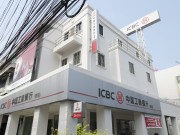The Insider: Impact of KYC and AML on Asset Managers in Asia-Pacific
In recent years, the spotlight on KYC (Know-Your-Client) and AML (Anti-Money Laundering) had caused tremendous difficulties for the global financial industry.
Jeff Plein, Chief Operating Officer of Fullerton Fund Management provides an exclusive insider perspective on the impact of KYC and AML on Asset Managers in Asia-Pacific
The Impact of KYC & AML on Asset Managers
The impact of KYC and AML is tremendous. Asset Managers have to spend more time onboarding client, face rising onboarding and systems costs, and keep existing clients data constantly updated.
Keynotes:
- Client onboarding and systems costs had increased
- Client onboarding times have lengthened
- Keep existing customer data always up-to-date
How KYC & AML Created Massive Problems

In Singapore, Fund Managers are required to identify and screen mandated officials. Small firms will find the cost of setting up a compliance department prohibitively expensive.
Each financial institution interprets regulatory policy through their own organizational lens, leading to non-standardized KYC and AML procedures. It is also increasingly complex to operate across jurisdictions.
There are also heavy-documentation for markets trading derivatives, structured products and non-exchange OTC instruments. And there is always the necessary hard copy and certified copies of documents.
Keynotes:
- Screening Politically Exposed Persons (PEP)
- Cost of compliance unit in small firms is expensive
- Different interpretation of regulatory policy
- Non-standardized KYC and AML procedures
- Different regulatory process in different jurisdiction
- Heavy documentation for financial products and instruments
- Hard copy and certified true copies of documents
How KYC & AML have Affected Clients
The impact of KYC & AML have affected clients greatly. There are constant inconsistencies in data and documentation requests. These are a direct result of different interpretations of regulations.
As clients will have multiple relationships (with Asset Managers), and each Asset Manager interprets legislation differently, the administrative burden can become significant. The end result is longer onboarding times, increased costs for both the client and the asset manager. These leads to delays in launching mandates.
By providing more information to Asset Managers, clients are concerned about how sensitive client data is being consumed and stored.
” clients are concerned about how sensitive client data is being consumed and stored “
With identity theft on the rise, clients rightly want to know who is accessing their data and what is being done to protect it.
Keynotes:
- Constant inconsistencies in data and documentation requests
- Asset Managers interprets legislation differently
- Longer onboarding times
- Increased costs for clients and Asset Managers
- Delays in launchign mandates
- Where sensitive data are being stored and used
- Security measures to protect the sensitive data
How KYC & AML Affected Operations
 Existing KYC and AML workflows are manual, while audit trails are paper-based. Manual workflows between teams may also result in inadvertent slippages of controls. For example, keeping track of expiry of information.
Existing KYC and AML workflows are manual, while audit trails are paper-based. Manual workflows between teams may also result in inadvertent slippages of controls. For example, keeping track of expiry of information.
Apart from the manual process, operationally, it also involves managing voluminous Anti-Money Laundering screenings. This is time-consuming and not cost-efficient for firms to search for information from independent public sources.
The unharmonized global KYC and AML rules across multiple jurisdictions create tension with clients who are fatigued by multiple requests from various financial institutions.
Keynotes:
- Existing KYC and AML workflows are manual
- Audit trails are paper-based
- Manual workflows between teams results in slippages of controls
- Example: Expiry of information
- Voluminous AML screenings
- Screening from independent public sources
- Entire process is time-consuming and not cost-efficient
Exclusive: At Fullerton Fund Management
To help tackle these challenges, Fullerton Fund Management recently selected Thomson Reuters Org ID.
Org ID provides best practices and remain up-to-date with KYC and AML regulations in Singapore, APAC and globally. It also improves efficiency for their staffs as ORG ID collects, verifies, screens and continuously monitors entities and related parties, highlighting risks throughout the process.
” the ultimate decision on whether or not to onboard a client “
Staffs can concentrate on more value-added tasks (such as making risk-based decisions on PEPs, sanctions and adverse media) that determines the ultimate decision on whether or not to onboard a client.
About Thomson Reuters Org ID
A global solution developed to simplify and streamline counter-party due diligence and the ongoing maintenance of Know-Your-Customer (KYC) compliance records.
Thomson Reuters Org ID is an end-to-end client identity and verification service that provides a complete legal entity due diligence and document management service through which financial institutions and their end clients (asset managers, hedge funds, correspondent banks and corporates) can more effectively manage their response to new KYC regulatory requirements.
Visit: Thomson Reuters Org ID
How the Industry can Improve
KYC and AML process can be centralised as there are multiple firms in the industry onboarding the same client.
It benefits clients. The client record is created once, maintained and shared. This will reduce cost, allow shorter onboarding times and less of a regulatory burden for individual Asset Managers.
The customer experience will also improve: clients will only have to provide data and documents to a centralized service once.
Keynotes:
- KYC and AML process can be centralised
- Multiple firms in the industry onboarding the same client
- Benefits clients
- Single client record to maintain and share
- Lower cost, shorter onboarding times, less regulatory burden
- Customer experience will improve
- Client provides data and document to a centralized server
Singapore as the Launch Pad for KYC & AML Solutions
Singapore benefits from a progressive and supportive regulator who actively encourages the market to look for solutions and improve market conduct.
” Singapore benefits from a progressive and supportive regulator “
Certain Singapore banks are already looking at innovative solutions for the banking sector. Other financial service communities, including asset management, should also progress in this area – or risk being left behind.
The adoption of a centralized KYC and AML model eliminates this risk. This also means interpreting the policies driving data and documentation collection. These will create a standardized operating model, with digitization, will drive efficiencies and lower costs.
Removing The “Hassle Tax”
There is one additional driver that the industry and our clients face: the ‘hassle tax’ involved in dealing with KYC and AML documentation-related requests.
If we can remove this tax and save our clients time and money in responding to KYC requests, whilst ensuring that their private information is kept safe, then we will create an incentive for widespread adoption of this model.
(‘Hassle tax’ is the friction costs, frustration, delays and administrative headache of managing everything about the KYC and AML requirements.)
Brighter Days for KYC & AML

There are two drivers for the successful adoption of a centralized solution:
Regulatory support – the industry needs the regulator(s) to publicly support the use of a centralized model.
Community support – the community of banks and asset managers should collectively agree to centralize their own data and encourage clients to do the same. With this momentum, the efficiencies of a centralized solution will become obvious in a very short time.
The Time to Change is Now
The opportunity to materially change the way the industry conducts KYC and AML is real. There is no better time for the asset management industry to work together to drive positive change in a very meaningful and impactful way.
The article is edited by Caproasia Online Editorial Team. The original content was written by Jeff Plein, Chief Operating Officer of Fullerton Fund Management: KYC and AML in the APAC region: An innovative solution to deep-rooted challenges
About Jeff Plein, COO Fullerton Fund Management
 Jeff Plein is the COO of Fullerton Fund Management. He is responsible for Fullerton’s Compliance, Finance, Investment and Fund Operations, Legal, Risk, and Technology globally. Prior to Fullerton, Jeff held senior business operations roles in Asia Pacific at PIMCO and BlackRock. Most recently Jeff was Managing Director, Head of Operations at BlackRock, and subsequently Head of Institutional Operations. Jeff has worked in Asia Pacific for 20 years and has 14 years of investment management experience.
Jeff Plein is the COO of Fullerton Fund Management. He is responsible for Fullerton’s Compliance, Finance, Investment and Fund Operations, Legal, Risk, and Technology globally. Prior to Fullerton, Jeff held senior business operations roles in Asia Pacific at PIMCO and BlackRock. Most recently Jeff was Managing Director, Head of Operations at BlackRock, and subsequently Head of Institutional Operations. Jeff has worked in Asia Pacific for 20 years and has 14 years of investment management experience.
Visit: Fullerton Fund Management
Sign Up / Register
Caproasia Users
- Manage $20 million to $3 billion of assets
- Invest $3 million to $300 million
- Advise institutions, billionaires, UHNWs & HNWs
Caproasia Platforms | 11,000 Investors & Advisors
- Caproasia.com
- Caproasia Access
- Caproasia Events
- The Financial Centre | Find Services
- Membership
- Family Office Circle
- Professional Investor Circle
- Investor Relations Network
Monthly Roundtable & Networking
Family Office Programs
The 2025 Investment Day
- March - Hong Kong
- March - Singapore
- July - Hong Kong
- July - Singapore
- Sept- Hong Kong
- Sept - Singapore
- Oct- Hong Kong
- Nov - Singapore
- Visit: The Investment Day | Register: Click here
Caproasia Summits
- The Institutional Investor Summit
- The Investment / Alternatives Summit
- The Private Wealth Summit
- The Family Office Summit
- The CEO & Entrepreneur Summit
- The Capital Markets Summit
- The ESG / Sustainable Investment Summit






































